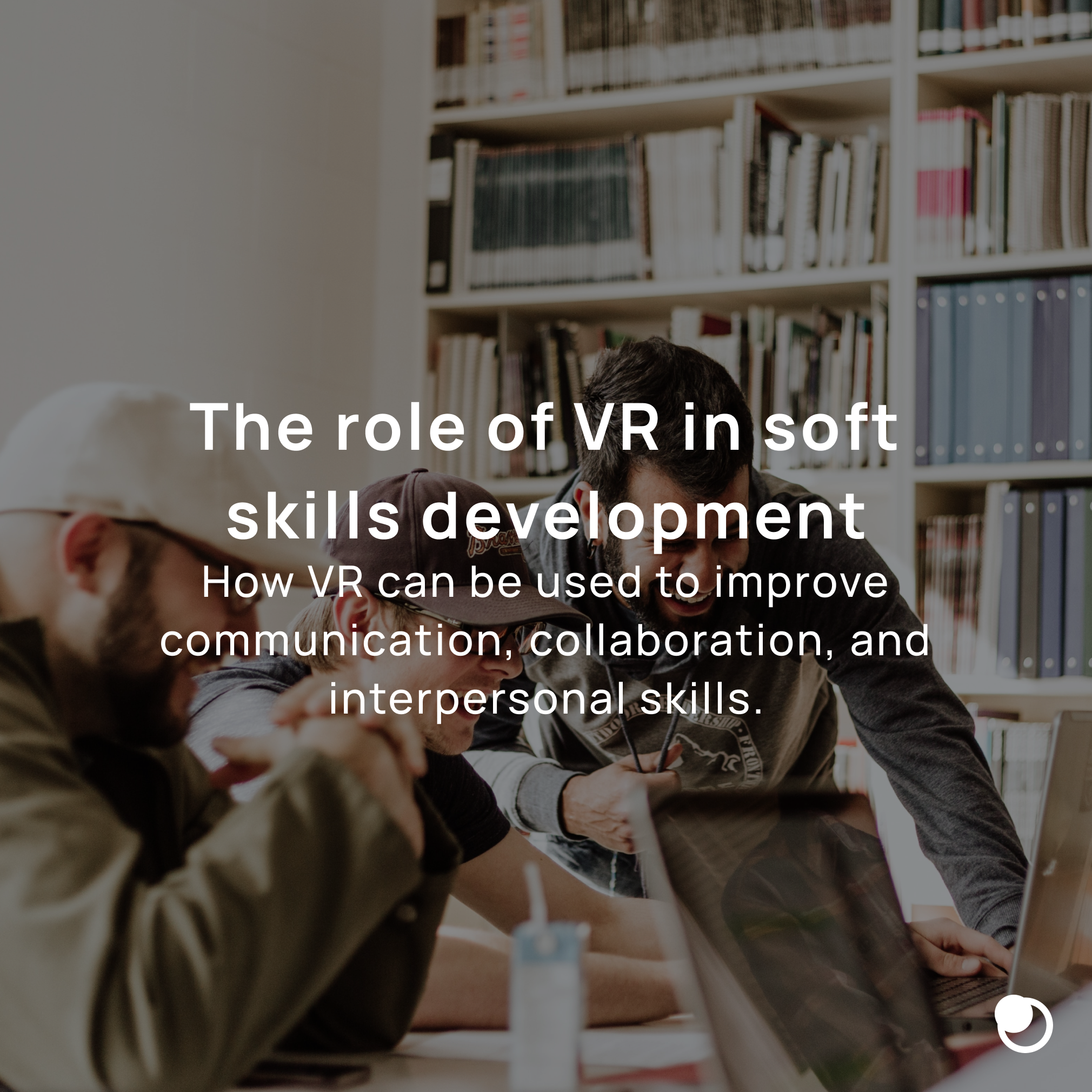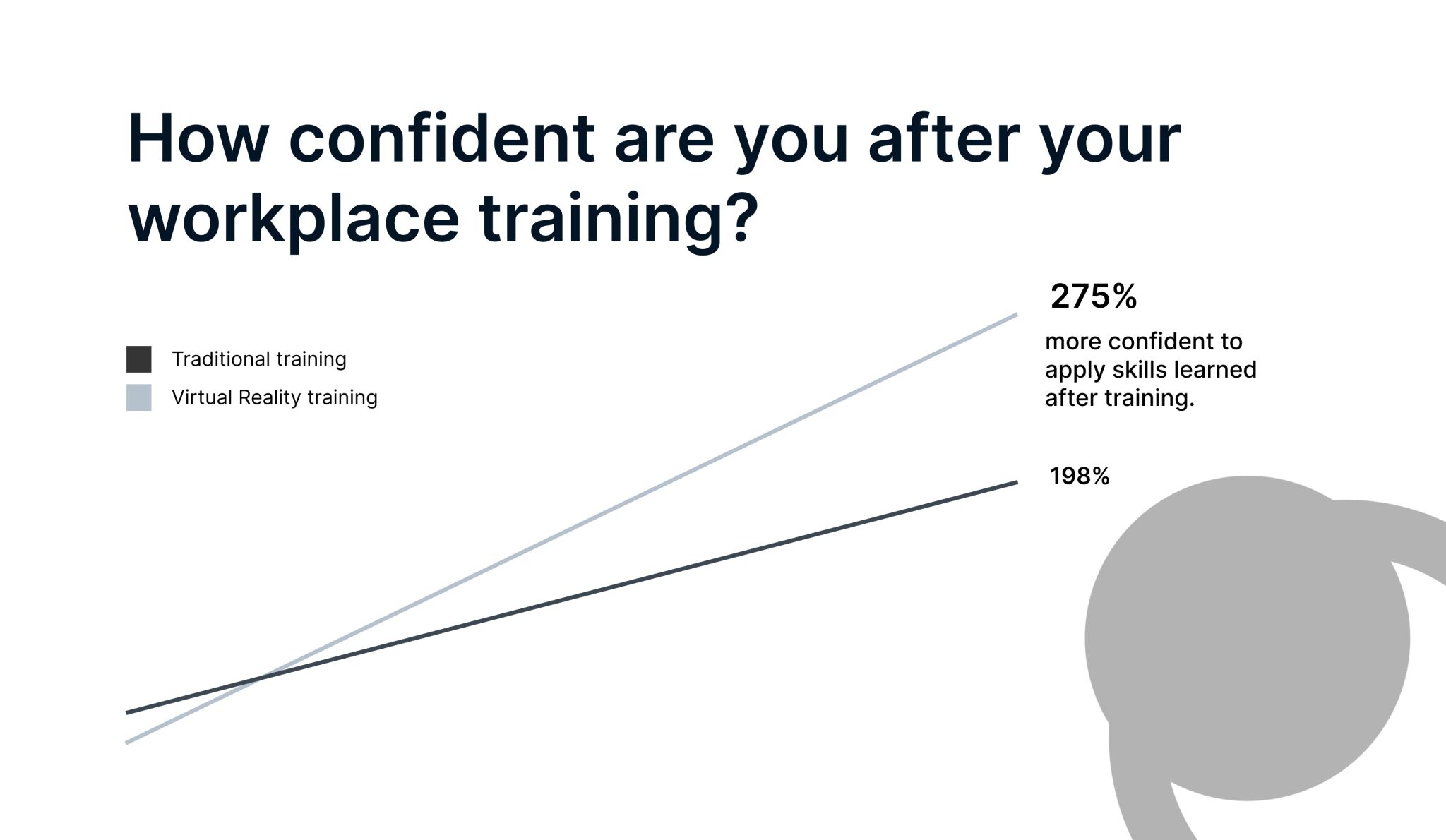
Soft skills have emerged as crucial attributes for personal and professional success. These skills, which include communication, collaboration, and interpersonal abilities, are not only essential for effective teamwork but also vital for building lasting connections. As technology continues to advance, Virtual Reality has proven to be a transformative tool in various industries, and its impact on soft skills development is no exception.
Virtual Reality
Virtual Reality immerses learners in an environment, replicating real-life situations and scenarios. This immersive nature has transformed VR into a powerful tool for soft skills development, allowing learners to practice and refine their abilities in a risk-free and controlled environment. VR training goes beyond traditional methods, providing individuals with a safe space to make mistakes, learn from them, and gain confidence in their skills.
Immersive Learning Environments Foster Real-Life Practice
Traditional soft skills training often involves workshops, role-playing exercises, and seminars, which may not fully immerse learners in real-life scenarios. VR offers a distinct advantage in creating lifelike simulations where users can practice their skills in controlled yet realistic environments. Participants can interact, engage in conversations, or collaborate tasks as they would in actual situations. This immersive learning experience allows learners to make mistakes, receive feedback, and learn from their experiences, all without real-world consequences. A study conducted by PwC found that VR learners were four times more focused than their counterparts in traditional training methods. Moreover, they also exhibited a 275% increase in confidence and a 40% faster learning rate.

Overcoming Public Speaking Anxiety
Public speaking is a common fear shared by many individuals. VR offers a safe environment for learners to practice and conquer their public speaking anxiety. They can present to virtual audiences, which feel remarkably real, and gradually build their confidence and presentation skills. A survey conducted by the University of Maryland found that participants who used VR for public speaking training reported a 33% reduction in anxiety levels compared to those who received traditional training.
Tailoring To Your Needs
Incorporating VR training that is specifically tailored to the job requirements of employees can have a profound impact on their professional development and work performance. One of the key advantages of VR is its versatility, allowing organizations to create customised training modules that align precisely with the skills and competencies needed for each job role. As a result of this targeted development, employees become better equipped to handle challenges effectively. The immersive nature of VR training allows them to experience a wide range of situations, including those that may be uncommon or challenging to recreate in traditional training environments. This exposure enables employees to develop quick thinking, problem-solving abilities, and adaptability, enhancing their capacity to handle unexpected situations with confidence and competence.
Upcoming Soft Skills Training App
Our Soft Skills VR training is the next-gen way to develop and improve interpersonal skills at work. Our immersive and interactive platform allows you to practice communication, collaboration, problem-solving, and critical thinking. The program is designed to help you master the art of communication and become more confident in your personal and professional relationships.
The role of VR in soft skills development is proving to be a game-changer in education and professional training. Through immersive learning environments, overcoming communication barriers, facilitating collaboration, and fostering emotional intelligence, VR offers a powerful platform for learners to enhance their communication, collaboration, and interpersonal skills.








